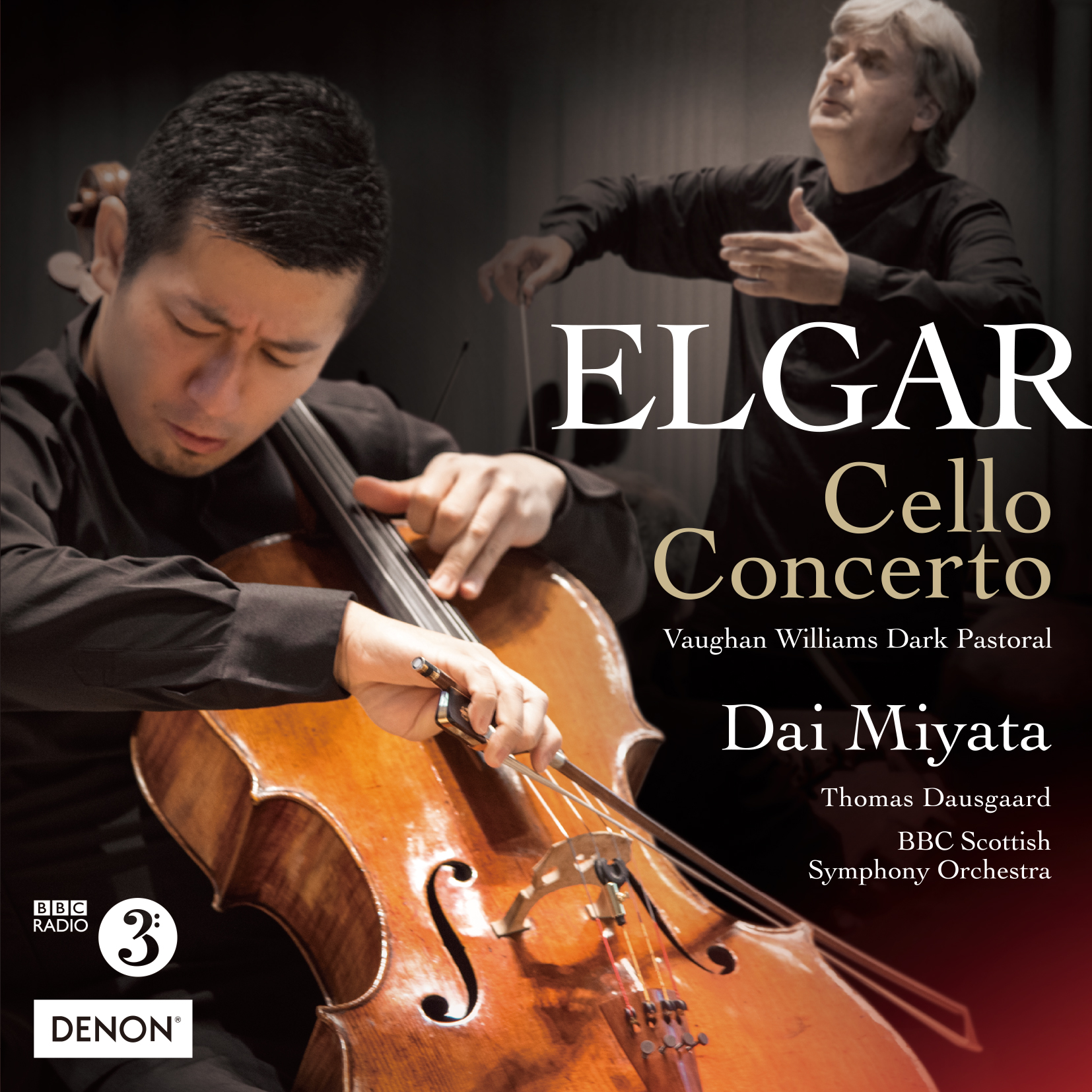DISCOGRAPHY
ELGAR:CelloConcerto / Vaughan Williams:Dark Pastoral

Edward Elgar: Cello Concerto in E minor, Op.85
1.Adagio – Moderato
2.Lento – Allegro molto
3.Adagio
4.Allegro, ma non troppo
5.Ralph Vaughan Williams/David Matthews: Dark Pastoral for cello and orchestra
Recorded on 25-26 August, 2019 at City Halls in Glasgow
Dai Miyata,:cello
Thomas Dausgaard:Conductor
BBC Scottish Symphony Orchestra
DENON 2019.10.30 ON SALE